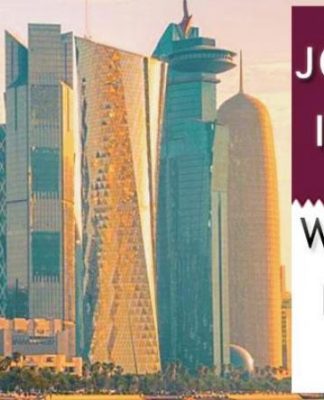Good News: The solar system’s most powerful phone charger and planet Earth’s biggest animal crossing

Welcome to the Good News round-up, your weekly digest of what’s going well in the world. We have five positive news stories for you:
- A scientific breakthrough that could see you charging your phone using the sun
- A man who won €200m on the lottery and spent almost all of it setting up a charity
- An initiative turning London buses into treatment centres for homeless people
- The world’s biggest animal crossing is being built over one of California’s busiest highways
- Brewers making beers to help the humanitarian effort in Ukraine
1. Solar-powered phone chargers could be coming soon
Back in 2017, researchers at a Swedish university created a system that can capture and store solar energy for up to 18 years. The invention was a radical step, but a big challenge remained – turning this store of solar power into electricity.
Last month, the Swedish scientists of Chalmers University sent a sample of their captured sunshine to Shanghai, where researchers from Jiao Tong University managed to convert it.
“We’ve been working on developing molecular systems that can capture sunlight, store it, and release it as heat on the demand. The new thing is that we have developed a device that can transform this heat into electric power in a very local way,” said Kasper Moth-Poulsen, professor at the Chalmers University of Technology.
The new generator is an ultra-thin chip that could be integrated into electronics such as headphones, smartwatches and telephones.
Prof. Moth-Poulsen said he was “really excited about this work,” which could potentially replace batteries, giving us a new way to harness the sun’s energy and help the climate while keeping our essential electronics going.
Read more about this breakthrough here.
2. Man who wins €200m on lottery spends almost all of it setting up a charity
So you’ve won the lottery. You have €200 million in your pocket. What do you spend it on first? A yacht? Maybe a penthouse in Paris? Private island?
A man in France who found himself in this fortunate position decided on something a little different. He’s used his jackpot winnings – almost all 200 million of them – to set up an environmental foundation to protect forests and boost biodiversity.
The man, whose real identity remains a mystery and who has been using the pseudonym Guy, said in an open letter that his “dream has never been to acquire boats, castles or sports cars, it is to be useful and to give meaning to this money, with maximum positive impact”.
He has named the foundation Anyama, after a city in Ivory Coast where he has spent time. He said: “The Anyama endowment fund is the result of a desire to act for nature and human beings, that I have had for years,” adding that “giving makes people happy, and constitutes a tremendous lever for transforming indignation into concrete and useful actions”.
Isabelle Césari, the head of big winners’ relations at Française des Jeux, the operator of France’s lottery, said the donation was a “great first”.
Césari says a donation of this proportion is quite exceptional: “Generosity comes up very frequently among our winners. It very often concerns their inner circle, with the idea of giving to those they love, but also to those who have not had the same luck in life.”
3. Initiative turns big red buses into treatment centres for homeless people
London buses are being turned into mobile treatment centres, funded by a coffee company called Change Please, which uses 100 per cent of its profits to finance charitable initiatives.
The charity combats homelessness by giving barista training and offering housing and employment opportunities.
And now they’ve launched Driving for Change, which will see three London buses equipped to support homeless people. They’ll be able to see medical staff and dentists, open bank accounts tailored to those with no fixed abode, and get advice on finding work.
One of the buses will have showers and hairdressers on board because, as Henrietta MacEwen, head of Driving for Change, told Euronews: “That’s important. People forget it’s so important for the homeless to feel good about themselves as much as they’re on the street. They can come on board and be looked after and be cared for.”
Another bus boasts a full dental suite and a nurse. MacEwen said: “One of the biggest problems [for] homeless people is their teeth. [Their circumstance make it very difficult to] find somewhere to go and brush your teeth every night or every morning.”
The third bus is in the works and will focus on mental health and women’s issues – “because women are the silent homeless,” says MacEwen.
The buses drive in and around London and have seen more than 250 people since they launched in November. MacEwen says Driving for Change will help with the small things that we can do to help somebody feel human again – “to help them feel that they’ve been seen.”
4. World’s biggest animal crossing spans one of California’s busiest highways
The world’s largest animal crossing will begin construction this month over one of the USA’s busiest highways. It will be 64 metres long and 50 metres wide and will link mountain areas that are currently divided by the road, allowing animals such as coyotes, lizards and protected mountain lions to go between the two areas safely.
Beth Pratt, a conservation leader with the National Wildlife Federation, spent almost 10 years planning the project, raising funds and convincing the authorities to go ahead.
More than half of the cost will be financed by private donations – including $300,000 from Leonardo DiCaprio’s foundation. The rest will come from public funds set aside for conservation purposes.
Robert Rock, the landscape architect who led the design, says this nature-centred type of construction makes it unusual among other wildlife bridges. The California animal crossing is designed to blend into the environment on both sides.
Unlike a traditional freeway overpass, the crossing will support wildlife and provide the habitat, shelter, food and water that individual species need to thrive.
5. Brewers come together to help humanitarian efforts in Ukraine
In Northumberland in the north of England, locals are helping to save lives in Ukraine by doing what they’ve done best for millennia: brewing beer.
The town of Twice Brewed has a brewing tradition that goes back to Roman times. And a brewery based there has joined a collective of local brewers who are raising money for the Red Cross’s humanitarian work in Ukraine – with a beer made with beetroot, a traditional ingredient in Ukrainian cuisine.
The beer, named Resist and described as a Ukrainian Anti-Imperial Stout, was developed by displaced Ukrainian brewers for the campaign Drinkers for Ukraine. They shared their recipe online and put out a call to breweries around the world to make it and donate the proceeds to the Red Cross.
“It’s basically an imperial stout, a strong stout – the stout being a dark beer, the imperial stout being a really strong, dark beer. And obviously, because it’s Ukraine standing up to Russia, it was decided to call it an anti-imperial stout,” Matthew Brown, head brewer at Twice Brewed Brewing Company, told Euronews.
Brown added: “No one’s taking [any money] from it at all, not even to cover assets. We’ve all donated our time for free or donated energy or resources, so there are no expenses to be covered.”
The beetroots were donated by a local company that makes jams and chutneys.

























![How to get a Qatar Family Residence Visa? [ Updated ]2022](https://welcomeqatar.com/wp-content/uploads/2022/04/maxresdefault-2-324x400.jpg)




